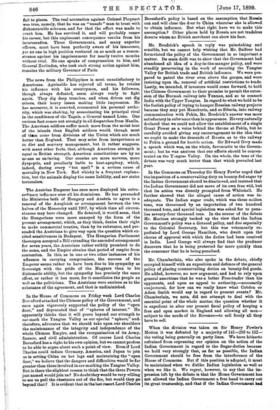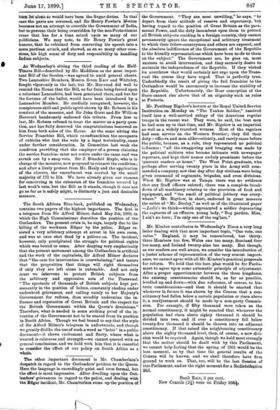When the division was taken on Sir Henry Fowler's Motion
it was defeated by a majority of 141-293 to 152— the voting being generally on party lines. We have hitherto refrained from expressing our opinion on the action of the Indian Government in regard to the Sugar-duties because we hold very strongly that, as far as possible, the Indian Government should be free from the interference of the House of Commons. But if this position is adopted, it must be maintained when we dislike Indian legislation as well as when we like it. We regret, however, to say that the im- pression left by the debate is that the Home Government has not allowed the Indian Government a free hand to carry out its great trusteeship, and that if the Indian Government had lderi ret-alo& so would have-been the Sugar:duties. In that- case the parts are reversed, and Sir Henry Fowler's Motion becomes not an attempt to override the Government of India, but to prevent their being overridden by the neo-Protectionist craze that has for a time seized upon so many of our politicians. We may note, to Sir Henry Fowler's great honour, that he refrained from converting his speech into a mere partisan attack, and showed, as on so many other occa- sions, his high sense of duty and responsibility in handling Indian subjects.







































 Previous page
Previous page